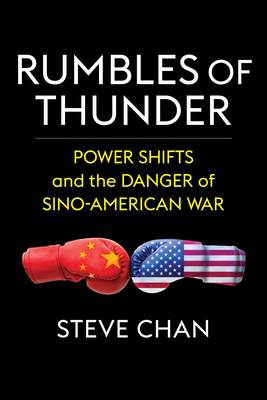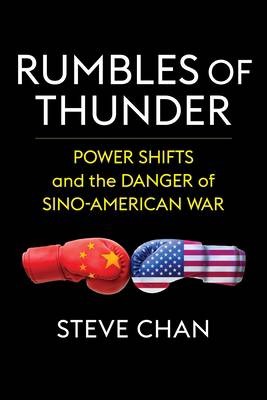
- Afhalen na 1 uur in een winkel met voorraad
- Gratis thuislevering in België vanaf € 30
- Ruim aanbod met 7 miljoen producten
- Afhalen na 1 uur in een winkel met voorraad
- Gratis thuislevering in België vanaf € 30
- Ruim aanbod met 7 miljoen producten
Zoeken
€ 54,45
+ 108 punten
Uitvoering
Omschrijving
It is widely believed that shifts in the balance of power between an established hegemon and a rising upstart can lead to war. To what extent does this proposition hold true for Sino-American relations today?
Steve Chan examines a range of international relations theories and popular narratives that suggest an elevated risk of confrontation between the two powers. Probing the recent deterioration in Sino-American relations, he considers whether several factors that can raise or lower international tension apply to the current situation. Chan demonstrates that power shifts do not preordain violent outcomes--nor does their absence ensure peace. Criticizing overly mechanistic frameworks, he emphasizes that domestic politics, international political economy, and the choices of individual leaders are all crucial to understanding why wars happen. Chan demonstrates that claims of a "rising China" catching up to and even poised to overtake the United States are alarmist: American structural advantages will endure for some time to come. Contrary to prevailing narratives, China does not act like a revisionist power seeking to overturn the system, while the United States, far from defending the international order, has frequently undermined it. However, Chan cautions, Taiwan remains a flashpoint for a possible Sino-American conflict. Bringing together expertise in IR theory and keen political acumen, Rumbles of Thunder challenges conventional wisdom on the likelihood of war between the United States and China.Specificaties
Betrokkenen
- Auteur(s):
- Uitgeverij:
Inhoud
- Aantal bladzijden:
- 336
- Taal:
- Engels
Eigenschappen
- Productcode (EAN):
- 9780231208451
- Verschijningsdatum:
- 27/12/2022
- Uitvoering:
- Paperback
- Formaat:
- Trade paperback (VS)
- Afmetingen:
- 152 mm x 229 mm
- Gewicht:
- 476 g

Alleen bij Standaard Boekhandel
+ 108 punten op je klantenkaart van Standaard Boekhandel
Beoordelingen
We publiceren alleen reviews die voldoen aan de voorwaarden voor reviews. Bekijk onze voorwaarden voor reviews.











